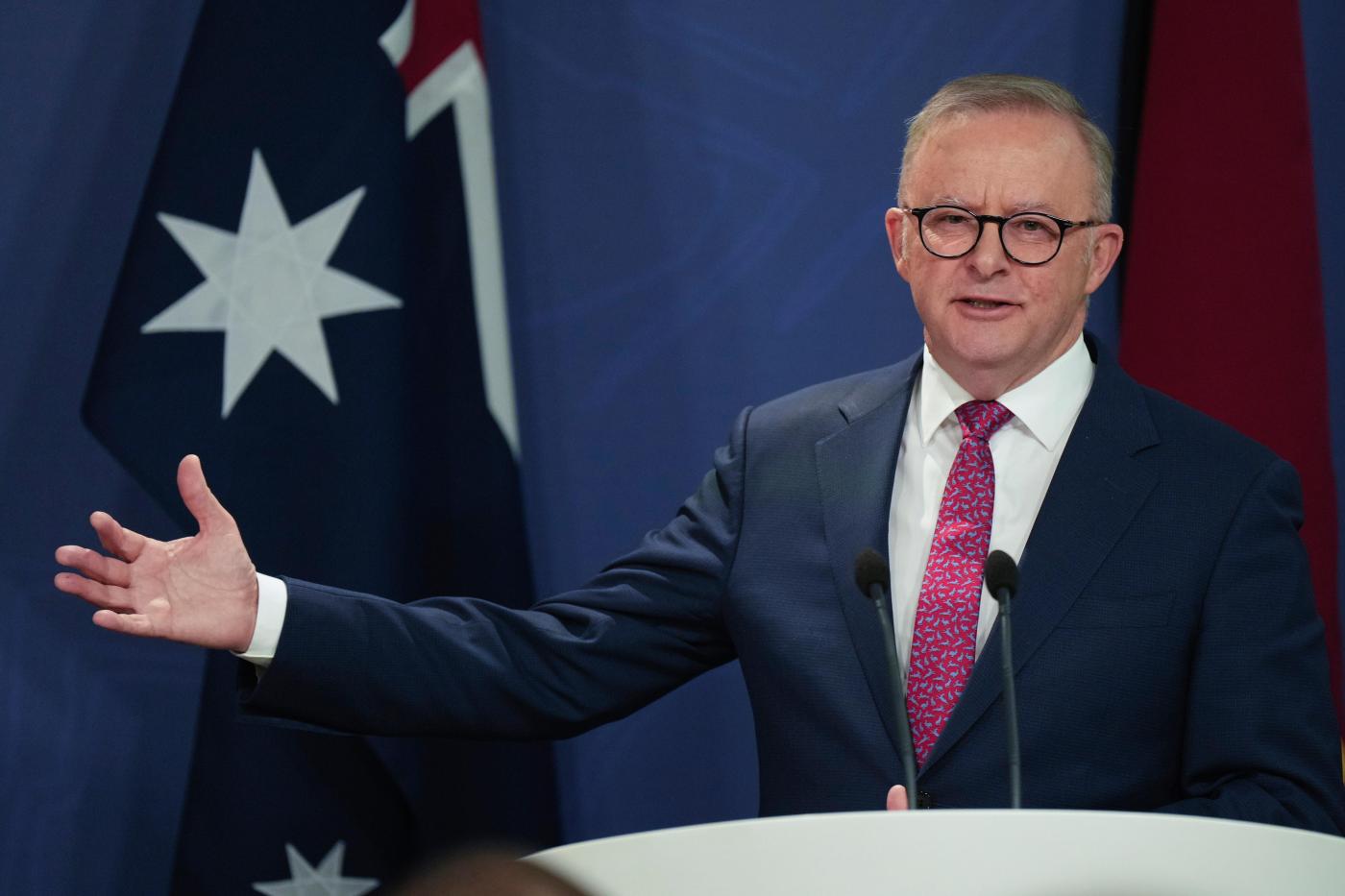**U.S. and Australia Sign $8.5 Billion Critical Minerals Deal Amid Rising China Tensions**
*WASHINGTON* — President Donald Trump and Australian Prime Minister Anthony Albanese signed a landmark critical-minerals agreement at the White House on Monday, marking a significant strategic move as the United States seeks to tap into Australia’s abundant rare-earth resources amid tightening Chinese export controls.
The deal, valued at $8.5 billion, was described by both leaders as a game-changer in the U.S.-Australia alliance. Trump, a Republican, noted that the agreement had been several months in the making. “In about a year from now we’ll have so much critical mineral and rare earth that you won’t know what to do with them,” Trump said proudly. “They’ll be worth $2.”
Prime Minister Albanese echoed the positive tone, saying the partnership elevates the U.S.-Australia relationship “to the next level.”
### China’s Export Restrictions Spark Urgency
Earlier this month, Beijing announced new regulations requiring foreign companies to obtain government approval before exporting magnets containing even trace amounts of rare-earth materials sourced from China or produced using Chinese technology. The Trump administration views these measures as a strategic attempt by China to extend its influence over the global technology supply chain.
“Australia is really, really going to be helpful in the effort to take the global economy and make it less risky, less exposed to the kind of rare earth extortion that we’re seeing from the Chinese,” said Kevin Hassett, director of the White House’s National Economic Council, ahead of Trump’s meeting with Albanese.
Hassett also praised Australia’s strong mining industry, its skilled refiners, and its vast critical mineral reserves—assets increasingly coveted by the U.S. due to their essential role in manufacturing everything from fighter jets and electric vehicles to laptops and smartphones.
### Accelerating Rare Earth Supply Chains
The agreement has the potential to immediately impact U.S. rare earth supplies if American companies can access minerals from existing Australian mines. However, experts caution that developing a robust supply chain independent of China will take years, if not decades.
Pini Althaus, founder of USA Rare Earth and CEO of Cove Capital, emphasized the importance of including price floors in purchase contracts from Australian mines to guard against China’s historical strategy of manipulating prices through dumping excess critical minerals on the market.
“For decades, China has used this tactic to drive prices down and squeeze competitors out,” Althaus explained. “Removing that arrow from China’s quiver is absolutely crucial for Australia and the West to develop the critical mineral projects needed to meet our supply chain demands.”
### Strengthening Alliances Against China’s Dominance
The agreement highlights the broader U.S. strategy of leveraging global partnerships to counter China’s dominance in rare earth materials. Top officials in the Trump administration have cited China’s control over rare earths as a national security risk and a call for stronger coordination among allies.
“China is a command-and-control economy, and we and our allies will neither be commanded nor controlled,” Treasury Secretary Scott Bessent said recently. “They are a state economy, and we are not going to let a group of bureaucrats in Beijing try to manage the global supply chains.”
Gracelin Baskaran, director of the Critical Minerals Security Program at the Center for Strategic and International Studies, noted the speed of investment commitment from both countries. “The U.S. and Australia will invest over $3 billion in joint critical minerals projects within six months. That’s a somewhat unprecedented speed of capital injection.”
### Looking Beyond Australia
While the new agreement with Australia is a major step, Althaus cautioned that Australia alone cannot fulfill all U.S. needs. He emphasized the importance of continued investment in mining and processing capabilities at home and in other friendly nations.
Central Asia, with its significant rare earth reserves and a legacy of Soviet-era mining infrastructure, offers promising opportunities for new development. “That could cut years off the time it will take to build new mines there,” he said.
“Keep in mind, China has almost a 40-year head start on us,” Althaus added. “We have at least a couple of decades to catch up in meeting our own supply chain requirements.”
### Security Partnership and Geopolitical Implications
In addition to critical minerals, the leaders discussed the AUKUS security pact involving Australia, the U.S., and the United Kingdom. Established during President Joe Biden’s administration, AUKUS aims to strengthen defense cooperation, including assisting Australia in acquiring nuclear-powered submarines.
Trump acknowledged Monday that while AUKUS was formed “a while ago,” progress has accelerated. Albanese highlighted the pact’s importance, stating, “Our defense and security partnership with AUKUS is so important for us.”
Navy Secretary John Phelan said the U.S. aims to refine the pact’s original framework to benefit all three signatories and clarify ambiguities: “So it should be a win-win for everybody.”
China responded by reaffirming its opposition to the pact, warning it could increase nuclear proliferation risks and intensify an arms race. Foreign Ministry spokesperson Guo Jiakun said, “We always oppose creating bloc confrontation, increasing nuclear proliferation risks and intensifying an arms race.”
### Albanese’s Vision Amid Political Change
The center-left Albanese was reelected in May, and following his victory, he distanced his party’s approach from Trumpism. “Australians have chosen to face global challenges the Australian way, looking after each other while building for the future,” he said during his victory speech.
—
This critical minerals deal underscores the growing cooperation between the U.S. and Australia as they work together to counterbalance China’s influence in strategic industries and global security.
https://www.chicagotribune.com/2025/10/21/us-australia-critical-minerals/

Be First to Comment